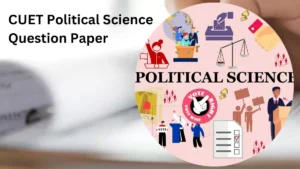Table of Contents
Adda 247 offers NCERT Solutions for Class 12 Biology Chapter 4, which is designed for students who desire to advance in life and earn high scores in their exams. NCERT Solutions for Class 12 are offered by instructors who are topic specialists. The solutions are prepared in accordance with the guidelines established by the NCERT class 12 biology, and they are written in language that all students can understand. By reading the solutions, students can simply develop a good foundation.
These NCERT Solutions for Class 12 assist students become acquainted with the texts. The Ncert Solutions For Class 12 Biology Chapter 4 are quite precise and accurate for achieving a good score in the examinations.
NCERT Solutions for Class 12 Biology Chapter 4 – Principles of Inheritance and Variation
The chapter provides information about Principles of Inheritance and Variation. Heredity is the transfer of character from parents to their offspring. These hereditary characteristics are present on the chromosomes in the form of genes. These gene combinations express characters that may be more similar to one of its two parents. The differences in characters of offspring mainly depend upon uthe nique process of crossing over that occurs during meiosis. This is one of the main reasons for producing recombination.
Important Questions of Ncert Solutions for Class 12 Biology Chapter 4
Question 1. Mention the advantages of selecting pea plant for experiment by Mendel.
Answer: The advantages of selecting garden pea (Pisum sativum) for experiments by Mendel were –
- Pea has many visibly distinct contrasting characters.
- The life span of the pea plant is short and they produce many seeds in one generation.
- Pea flowers are bisexual and show self-pollination, reproductive whorls being enclosed by corolla.
- It is easy to artificially cross-pollinate the pea flowers. The hybrids thus produced were fertile.
Question 2. Differentiate between the following –
(a) Dominance and Recessive
(b) Homozygous and Heterozygous
(c) Monohybrid and Dihybrid.
Answer: (a) Dominance and Recessive
| Dominance | Recessive |
| A dominant factor or allele expresses itself in the presence or absence of a recessive factor. | A recessive trait is able to express itself only in the absence of a dominant factor. |
| For example, tall plant, round seed, violet flower, etc. are dominant traits in a pea plant. | For example, dwarf plant, wrinkled seed, white flower, etc. are recessive traits in a pea plant. |
(b) Homozygous and Heterozygous
| Homozygous | Heterozygous |
| It contains two similar alleles for a particular trait. | It contains two different alleles for a particular trait. |
| Genotype for homozygous possess either dominant or recessive, but never both the alleles. For example, RR or rr |
Genotype for heterozygous possess both dominant and recessive alleles. For example, Rr |
| It produces only one type of gamete. | It produces two different kinds of gametes. |
(c) Monohybrid and Dihybrid
| Monohybrid Cross | Dihybrid Cross |
| Monohybrid Cross involves cross between parents, which differs in only one pair of contrasting characters. | Dihybrid Cross involves cross between parents, which differs in two pairs of contrasting characters. |
| For example, the cross between tall and dwarf pea plant is a monohybrid cross. | For example, the cross between pea plants having yellow wrinkled seed with those having green round seeds is a dihybrid cross. |
Question 3. A diploid organism is heterozygous for 4 loci, how many types of gametes can be produced?
Answer: Locus is a fixed position on a chromosome, which is occupied by a single or more genes. Heterozygous organisms contain different alleles for an allelic pair. Hence, a diploid organism, which is heterozygous at four loci, will have four different contrasting characters at four different loci. For example, if an organism is heterozygous at four loci with four characters, say Aa, Bb, Cc, Dd, then during meiosis, it will segregate to form 8 separate gametes.
Types of gametes produced by organism= wherein n= number of loci for which the organism is heterozygous. The given diploid organism is heterozygous for 4 loci, types of gametes produced = = 16.
Question 4. Explain the Law of Dominance using a monohybrid cross.
Answer: Mendels law of dominance states that a dominant allele expresses itself in a monohybrid cross and suppresses the expression of recessive allele. However, this recessive allele for a character is not lost and remains hidden or masked in the progenies of F1generation and reappears in the next generation.
For example, when pea plants with round seeds (RR) are crossed with plants with wrinkled seeds (rr), all seeds in F1 generation were found to be round (Rr). When these round seeds were self-fertilized, both the round and wrinkled seeds appeared in F2 generation in 3: 1 ratio. Hence, in F1 generation, the dominant character (round seeds) appeared and the recessive character (wrinkled seeds) got suppressed, which reappeared in F2 generation.
Question 5. Define and design a test-cross.
Answer: Test cross is a cross between an organism with unknown genotype and a recessive parent. It is used to determine whether an individual is homozygous or heterozygous for a trait.
Example:
Suppose you have a violet and white flower and violet color (P) is dominant to white (p). The white flower must be homozygous for the recessive allele, but the genotype of the violet flower is unknown. It could be either PP or Pp.
A testcross will determine the organism’s genotype. The unknown genotype can be determined by observing the phenotypes of the resulting offspring.
If crossing the unknown dominant phenotype (PP or Pp genotype) individual with the recessive phenotype individual produces only dominant phenotypes (no recessive), then the unknown individual is homozygous dominant.
If any recessive phenotypic individuals result from the cross, then the unknown individual must carry the recessive allele, and have the heterozygous genotype
Question 6. Using a Punnett Square, workout the distribution of phenotypic features in the first filial generation after a cross between a homozygous female and a heterozygous male for a single locus.
Answer: The phenotypic features in the first filial generation after a cross between a homozygous female and a heterozygous male for a single locus, say height, is as follows:
Question 7. When a cross in made between tall plant with yellow seeds (TtYy) and tall plant with green seed (Ttyy), what proportions of phenotype in the offspring could be expected to be
(a) tall and green.
(b) dwarf and green.
Answer: As given phenotype of TtYy parent, tallness is dominant over dwarfism and yellow seed is dominant over green seeds. Genotype of tall and green progeny will be Ttyy and TTyy, and that of dwarf and green progeny will be ttyy. Proportion of tall and green progeny= 3
Proportion of dwarf and green progeny= 1
Question 8. Two heterozygous parents are crossed. If the two loci are linked what would be the distribution of phenotypic features in F1 generation for a dihybrid cross?
Answer: In this case, the distribution of phenotypic feature would follow the same pattern as in dihybrid cross done by Mendel. It is important to recall the Law of Independent Assortment while answering this question. This law says that different traits segregate independent of each other; during gamete formation.
Question 9. Briefly mention the contribution of T.H. Morgan in genetics.
Answer: The contributions of T.H. Morgan are:
- Morgan was the first to provide experimental verification for the chromosomal theory of inheritance by his work on Drosophila melanogaster.
- He defined linkage between two genes located close together which are always inherited together.
- The identified linkage to be of two types tightly linked genes, where both the genes are passed onto the next generation and loosely linked genes in which recombination may take place due to a large distance present within the two genes.
- He also defined the term recombination of non – parental gene recombination.
- His findings of linked genes pavemented the path for genome mapping that is done today.
- He also contributed to the understanding of sex – linked inheritance vii. He has also worked on mutations.
Question 10. How is sex determined in human beings?
Answer: Sex determination in human beings
In humans, out of 23 pairs of chromosomes, 22 pairs are exactly the same in male and female called autosomes. However, a pair of the X chromosome is present in female and XY in male. During spermatogenesis, male produce two types of gametes (sperms), 50% carries Y chromosome and remaining 50% contain X chromosome. On the other hand, female produces only one kind of gamete (ovum) having X chromosomes only. When sperm having Y chromosome fertilises the ovum the sex of the baby is male and when sperm carrying X chromosome fertilises the egg, the sex of the baby is female.




 CUET Political Science Question Paper 20...
CUET Political Science Question Paper 20...
 CUET Business Studies Syllabus 2025, Do...
CUET Business Studies Syllabus 2025, Do...
 CUET Commerce Syllabus 2025: Major Chang...
CUET Commerce Syllabus 2025: Major Chang...








